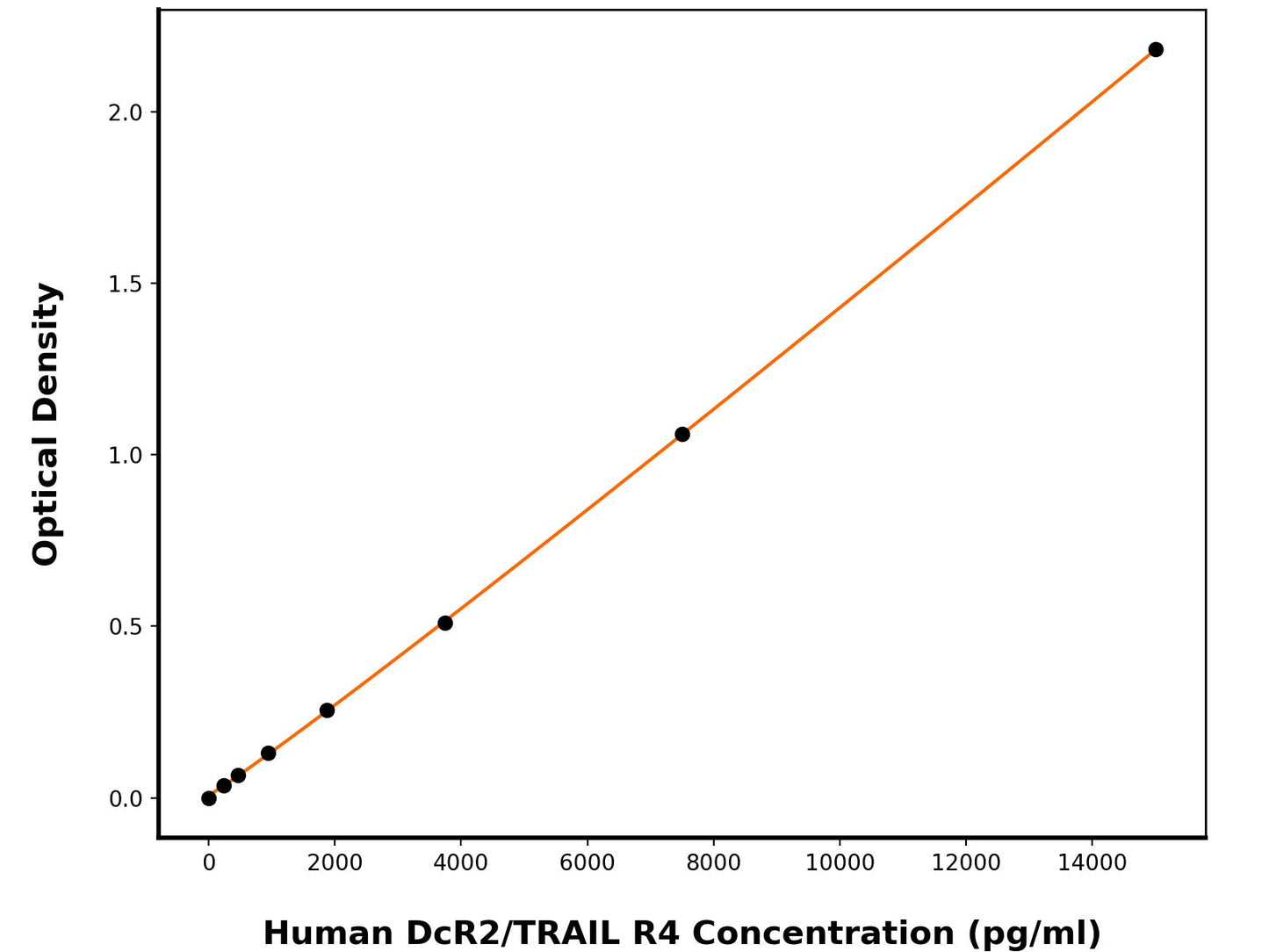1
/
of
1
Human Tumor Necrosis Factor Receptor Superfamily Member 10D (TNFRSF10D) ELISA Kit
Human Tumor Necrosis Factor Receptor Superfamily Member 10D (TNFRSF10D) ELISA Kit
This ELISA kit is designed to detect Human Tumor Necrosis Factor Receptor Superfamily Member 10D (Human TNFRSF10D). The assay plate has been pre-coated with mouse anti-Human DcR2 monoclonal antibody. When the sample containing DcR2 is added to the plate, it binds to the antibodies coated on the wells. Then, a horseradish peroxidase conjugated mouse anti-Human DcR2 Antibody is added to the wells and binds to DcR2 in the sample. After washing the wells, substrate solutions are added, and the color intensity is directly proportional to the amount of Human DcR2 present. The reaction is stopped by adding an acidic stop solution, and the absorbance is measured at 450 nm.
Catalog No:
BPE079
Regular price
$624.00 USD
Regular price
$480.00 USD
Sale price
$624.00 USD
Unit price
/
per
2 weeks
Couldn't load pickup availability
Product Details
Species Reactivity
Human
Sensitivity
81.38 pg/mL
Detection Range
234.38-15000 pg/mL
Sample Type
Serum, plasma, cell culture supernates
Incubation(s)
3.5 hour(s)
Research Areas
Cancer, Cell Biology, Immunology
Background
Tumor necrosis factor receptor superfamily member 10D (TNFRSF10D), also known as TNF-related apoptosis-inducing ligand receptor 4 (TRAIL R4), CD264, and Decoy receptor 2, is a member of the TNF-receptor superfamily. This receptor contains an extracellular TRAIL-binding domain, a transmembrane domain, and a truncated cytoplamic death domain. This receptor does not induce apoptosis, and has been shown to play an inhibitory role in TRAIL-induced cell apoptosis. TRAIL R4/CD264/TNFRSF10D is widely expressed, in particular in fetal kidney, lung and liver, and in adult testis and liver. TRAIL R4/CD264/TNFRSF10D is also expressed in peripheral blood leukocytes, colon and small intestine, ovary, prostate, thymus, spleen, pancreas, kidney, lung, placenta and heart. The signaling capacity of TRAIL R4 is similar to that of TRAIL R1 and TRAIL R2 with respect to NF-κB activation, but differs in its inability to induce apoptosis. TRAIL R4 retains a C-terminal element containing one third of a consensus death domain motif. Transient overexpression of TRAIL R4 in cells normally sensitive to TRAIL-mediated killing confers complete protection, suggesting that one function of TRAIL R4 may be inhibition of TRAIL cytotoxicity.
Shipping Condition
Shipped on cold gel packs.
Storage Condition and Shelf Life
This product can be stored at 2-8C.
Analyte
Tumor necrosis factor receptor superfamily member 10D
Regulatory Status
For Research Use Only

